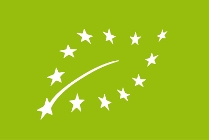The very next day after posting our blog article, What Makes French Organic Wine, Organic, the European Commission withdrew the Orwine project, which was supposed to find a European standard for organic wine.

Decanter has reported on this in their article, EU says no to organic wine. Vitisphere (French language link) quote the EU Commissioner for Agriculture & Rural Development, Dacian Ciolos, as saying "the conditions for introducing these new rules are not united in the majority of the member states. I am not ready to accept a compromise on the organic standards which would send a bad signal to the consumers on the importance that the Commission places on quality. I hope that the (wine) industry and research will make progress, and that the Commission will come back with a proposition."
We agree with the stance to refuse a compromise on standards, which are in our view the minimum that the public expects, but we are very concerned about the position in which organic wine is left.
If you buy organic jam, you expect a product that is not only made from fruit that has been cultivated to organic standards, but that the sugar used is organic, and that no other artificial elements have been use to "enhance" the flavour or colour. Why should wine be any different?
It would appear that the wine making methods used in different EU countries and region are at the heart of the problem. But why? If we agree on the principal that organic wine should be made from organically grown grapes, without the use of chemical fertilizers, pesticides and herbicides, and that nothing unnatural is added during the fermentation and ageing process, there shouldn't be any problem. True, there remains some debate about the use of some products such as sulfur to help preserve the wine, but the proposal to reduce the amount by 50% is a good starting point, and winemakers can use less if they wish.
A question of integrity
Yesterday we were at Domaine Chapelle (French language link) in Santenay, Burgundy for a Gourmet Odyssey Wine Experience day. Domaine Chapelle has been organically certified since the beginning of this year, but has been using organic methods for best part of the last decade. Jean François Chapelle explained the journey he embarked on to become an organic winemaker, and also responded to questions about the wine making methods he uses. He is clearly a passionate man, not just for wine, but for the environment around him; his terroir, his village, his region, the legacy that his generation will leave to future generations. He adds nothing else to his wine that wasn't covered by the Orwine proposal. Do organic wine makers in France, Italy, or Spain with the same ideology really think differently from one another?
Without a European standard, the worst possible outcome is inertia, which leaves the door open to profiteers who want to jump on the organic wine band wagon for purely economic reasons. The other risk is that each country develops its own standards, but if the rules are different from one country to another, how can the consumer make an educated purchase decision? Maybe the time has come for wine, like other food and drink products, to include the ingredients and amounts used on the labels, especially for organic wine?
A solution must be found urgently to introduce organic wine
making rules and to have a real organic wine label.
What are your thoughts?
Comments
No comments.




